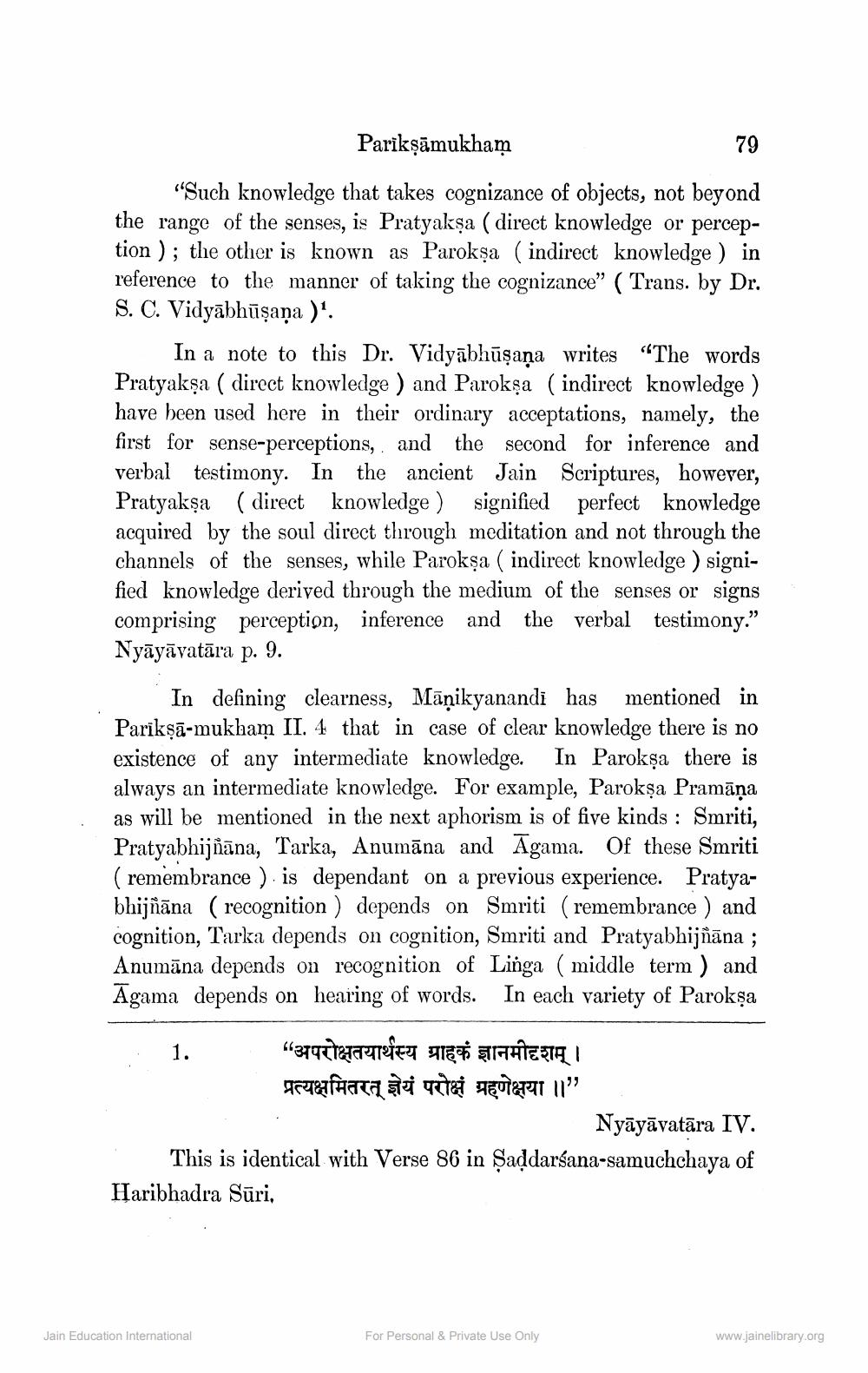________________
Pariksāmukham
79
"Such knowledge that takes cognizance of objects, not beyond the range of the senses, is Pratyakṣa ( direct knowledge or perception); the other is known as Parokşa (indirect knowledge ) in reference to the manner of taking the cognizance” ( Trans. by Dr. S. C. Vidyābhūşaņa )'.
In a note to this Dr. Vidyābhūşaņa writes “The words Pratyakşa ( direct knowledge ) and Parokşa (indirect knowledge ) have been used here in their ordinary acceptations, namely, the first for sense-perceptions, and the second for inference and verbal testimony. In the ancient Jain Scriptures, however, Pratyakşa (direct knowledge ) signified perfect knowledge acquired by the soul direct through meditation and not through the channels of the senses, while Parokşa ( indirect knowledge ) signified knowledge derived through the medium of the senses or signs comprising perception, inference and the verbal testimony.” Nyāyāvatāra p. 9.
In defining clearness, Māņikyanandi has mentioned in Pariksā-mukham II. 4 that in case of clear knowledge there is no existence of any intermediate knowledge. In Parokșa there is always an intermediate knowledge. For example, Parokşa Pramāņa as will be mentioned in the next aphorism is of five kinds : Smriti, Pratyabhijñāna, Tarka, Anumāna and Agama. Of these Smriti ( remembrance ) is dependant on a previous experience. Pratyabhijñāna ( recognition ) depends on Smriti (remembrance ) and cognition, Tarka depends on cognition, Smriti and Pratyabhijñāna ; Anumāna depends on recognition of Linga ( middle term ) and Āgama depends on hearing of words. In each variety of Parokşa
"अपरोक्षतयार्थस्य ग्राहकं ज्ञानमीदृशम् । प्रत्यक्षमितरत् ज्ञेयं परोक्षं ग्रहणेक्षया ॥"
Nyāyāvatāra IV. This is identical with Verse 86 in Saddarśana-samuchchaya of Haribhadra Sūri,
Jain Education International
For Personal & Private Use Only
www.jainelibrary.org




